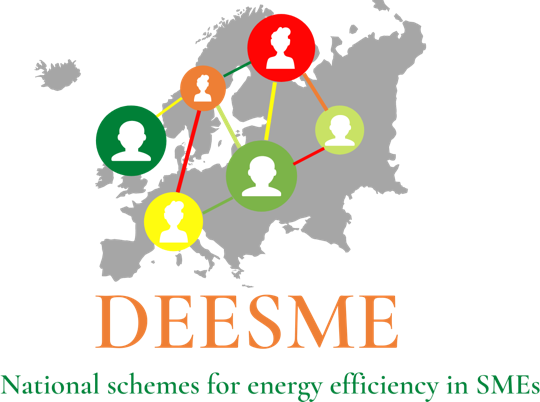DEESME releases a new report on best-practice on energy audits, energy management and multiple-benefits policies
Shaped from a previous document that provides an inventory of needs and requirements of national authorities (NAs/IB), Fraunhofer ISI implemented a report based on best- practice policies for energy audits, energy management and multiple benefits. The deliverable aims at paving the way for developing proposals on how to respond to 10 identified challenges, derived to enable the analysis of current practices in the MS, regarding the uptake and implementation of energy audits and/or management systems within companies.
For each challenge, a thorough analysis was conducted to identify current practices in EU-27 MS. The
analysis included both desk research and direct contact with the NAs when needed.
The main outcomes of the deliverable consist in the key outcomes of the deliverable D2.3 (Requirement-based report on best-practise for policies on energy audits, energy management and multiple-benefits), which can be described as follows:
- Identifying how the EU-27 deal with 10 core challenges related to the Implementation or Art. 8 EED, i.e. the uptake and implementation of energy audits and/ or management systems in companies;
- Analysing the strategies for overcoming the six challenges targeting non-SMEs and four challenges targeting SMEs, including;
o Utilizing existing company registers to identify obliged companies;
o Supporting companies and auditors by providing detailed guidelines on the auditing process;
o Implementing digital audit submission systems to reduce operational costs;
o Introducing energy thresholds to reduce the burden on companies with a low energy consumption;
o Limiting auditor accreditation in time to ensure that auditors remain up-to-date;
o Using peer-to-peer networks to raise awareness on energy efficiency among companies;
o Sharing best practise examples about successful implementation;
- Breaking-down of the challenges into 29 aspects for a deeper investigation in a forthcoming guideline on best practices (D2.4);
- Outlining of the potential role of non-energy benefits for national authorities working on the implementation of Art.8.
Eventually, the report highlights a few suggestions on how NAs could support the uptake of energy efficiency measures in companies, spreading the concept of “Multiple benefits approach” in an empowered management framework for companies further.
